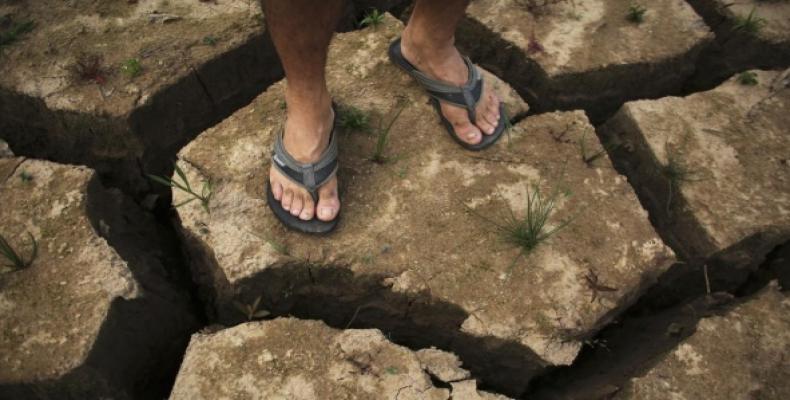Rome, September 15 (teleSUR-RHC)-- Worsening drought associated with the El Niño weather phenomenon has severely reduced crop output in several Central American countries this fall for the second year in a row, according to the United Nations' Food and Agriculture Organization (FAO).
The consecutive crop losses have had catastrophic effects on small farmers and rural communities in the region, who already struggle to meet their basic needs, while the longer the drought lasts the greater the humanitarian disaster will become, said the FAO.
According to media reports, the extreme weather could drive further migration from the Central American countries, particularly Honduras, Guatemala and El Salvador, where poverty and lack of opportunity is already widespread.
A state of alert has been declared in the region by the Central American Agricultural Council – which is headed by local ministers – after hundreds of thousands of subsistence farmers have suffered the partial or total loss of their summer crops, the FAO reported. The organization's figures state that maize crops have suffered a loss of 60 percent while bean crops saw a loss of at least 80 percent.
This year's El Niño impacts in the region are worse than last year's, according to the FAO who have characterized the weather phenomenon as an “abnormal warming of surface waters in the eastern Pacific Ocean, and is accompanied by dry spells that can delay planting, reduce planting areas and stifle crop development.”
The United States National Weather Service has echoed these concerns, adding that drought caused by El Niño is expected to worsen further for the Central American region going into the 2015-2016 winter season.
Tens of thousands of people from the region have already left over the past few years, fleeing situations of violence and poverty and trying to enter the United States in search of stability and opportunity. The United States has reacted to the mass migration by strengthening their border patrols, holding youth and families in detention centers for longer than the legally allotted period of time, and increasing deportations.


